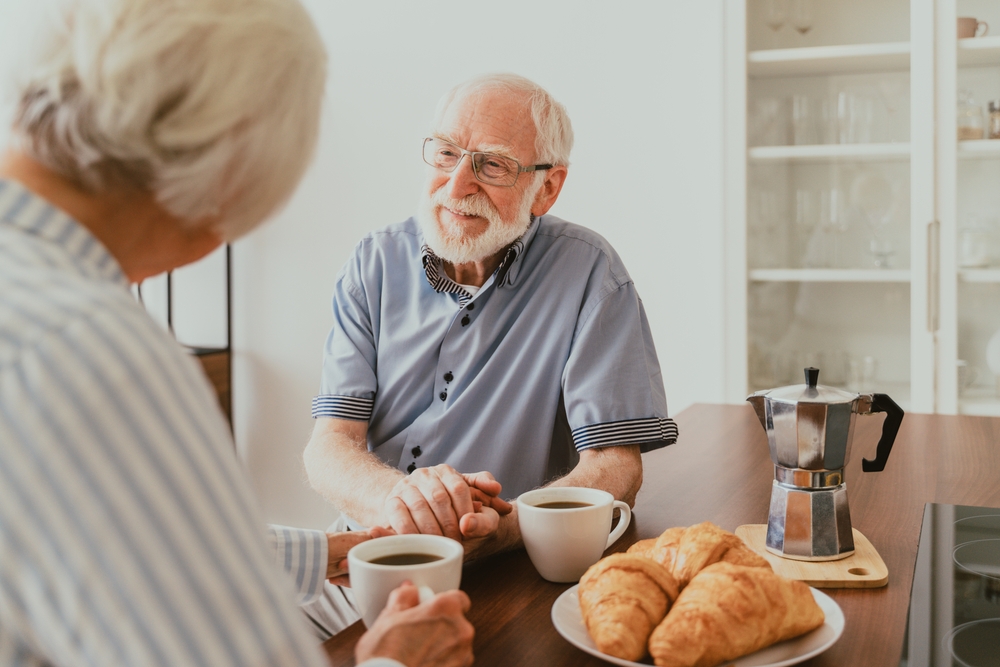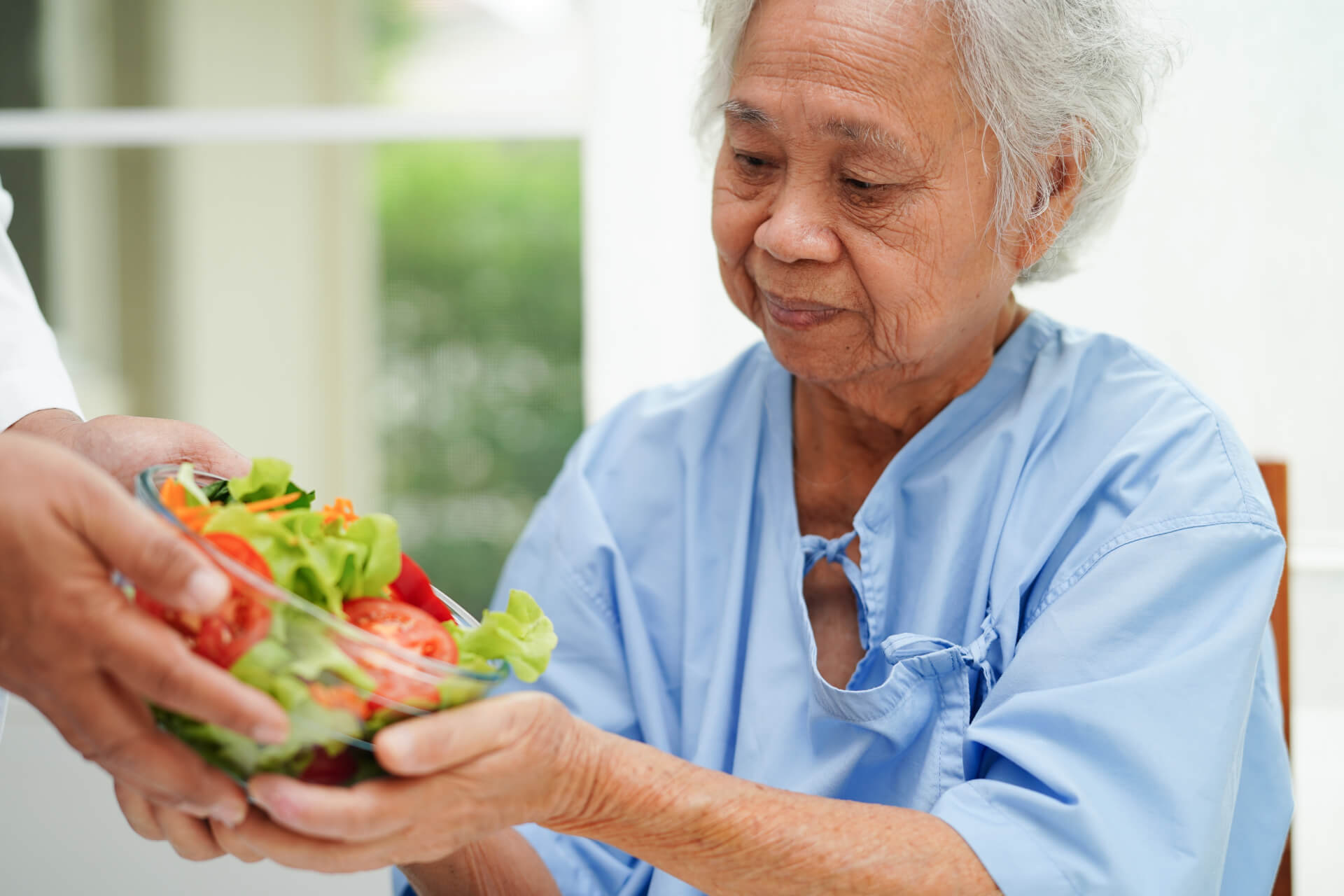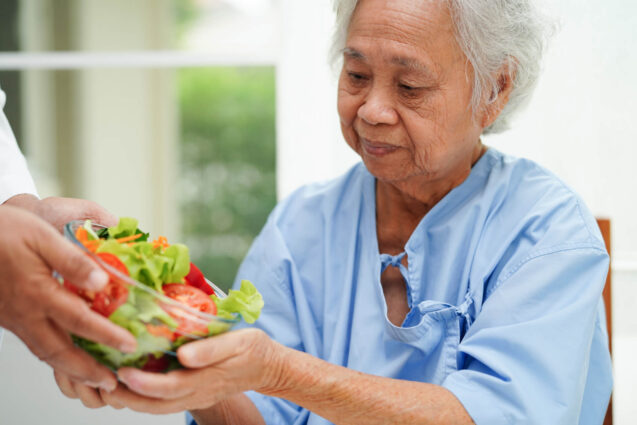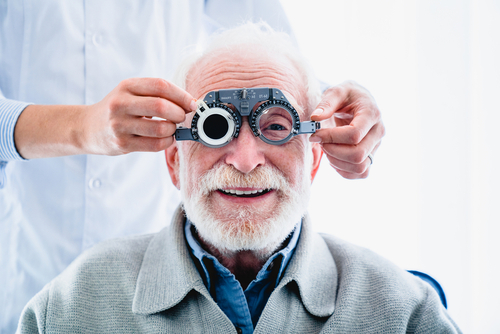What to Do When the Elderly Refuse to Eat?
It is no wonder that many elderly who live alone and lack proper care and assistance with their daily activities suffer from sudden weight loss. They often have difficulty regulating their food intake, or, worse yet, may start refusing to eat altogether. Since this can have a detrimental effect on their health and immunity, it’s important to address this issue effectively.
Finding the right solution isn’t always straightforward, and deciding on the best course of action can be difficult. This is why many families seek support from experienced home care professionals in Los Angeles. At A Better Way of Home Care, all of our referred professionals are skilled in developing strategies to help your elderly loved ones and protect their health.
What causes an elderly person to stop eating?

Some loss of appetite in old age is often normal. It’s not uncommon for the elderly to experience changes in their appetite or loss of appetite. It may happen naturally, as part of the aging process.
However, there may be other reasons for their lack of appetite, which could be remedied. If you’re wondering what it means when an elderly person stops eating, here are some possible causes to explore:
- Changing taste buds due to age (causing food to taste bland)
- Slowing metabolism as a result of aging
- Loneliness and depression
- Lack of energy to shop for groceries and prepare food
- Lack of physical activity
- Deteriorating health
- Side effects of medication (some medications cause nausea or dry mouth by reducing saliva production, making it uncomfortable to eat)
- Poorly fitting dentures (which may be moving and slipping, making eating painful)
- Cognitive challenges, such as forgetfulness
It’s always worth looking into the reason behind your loved one’s appetite loss because it may be a sign of an underlying problem.
In many cases, these issues can be easily solved. For example, your elderly relative may benefit from some very simple accommodations, like getting in-home support for meal preparation. While seniors often hesitate to adapt to changes, having a caregiver help with cooking and everyday tasks may be just the change they need.
In other cases, a medical check-up or full-time supervision can be helpful in uncovering the root cause and treating the senior’s appetite loss. It’s best to act with precaution since refusing to eat could ultimately result in nutrient or vitamin deficiency.
What health conditions can lead to the loss of appetite in seniors?
Poor appetite isn’t always a reason to be concerned for a senior’s safety, but there are serious medical reasons that may cause an elderly person to stop eating, for instance:
- Dental issues
- Gastrointestinal issues, which can disrupt normal eating and digestion.
- Diabetes
- Cancer
This is why an unexplained decrease in appetite should be investigated, especially if it’s accompanied by other issues, like weight loss.
When should loss of appetite be a concern?
Here are some instances where appetite loss should be taken seriously:
- Lasting more than a few days: If the loss of appetite persists beyond several days without a clear reason like temporary stress or a mild illness.
- Leading to weight loss: When it results in noticeable, unintentional weight loss, which can significantly impact health.
- Accompanied by other symptoms: If it comes with additional symptoms such as fatigue, mood changes, digestive problems, or general weakness.
- Existing health conditions: In seniors with pre-existing medical conditions, a decrease in appetite can complicate their health issues and hinder treatment.
- Risk of nutritional deficiencies: Elderly individuals are at higher risk for nutritional deficiencies, and a prolonged loss of appetite can worsen these risks.
It’s crucial for caregivers or family members to monitor these signs closely and seek medical advice to ensure the health and well-being of elderly loved ones.
How do you stimulate your elderly loved one’s appetite?
Encouraging someone to eat when they’re not interested can be tough, but it’s crucial to keep trying and be patient with them. Fortunately, there are several strategies to treat elderly appetite loss, including natural appetite stimulants and effective methods to encourage eating.
Here are some tips:
- Address underlying issues: First, identify if the loss of appetite is due to illness, medication, or other health concerns. Consulting a doctor to address these issues is crucial.
- Establish a routine: Eating at the same times each day can help condition the body to feel hungry at meal times.
- Adapt eating habits: If smaller, more frequent meals work better for your loved one, stick with that rather than forcing three large meals. Keep nutritious options that suit their eating style.
- Enhance digestibility: Incorporating spices like fennel, ginger, rosemary, or turmeric can aid digestion and improve appetite. Also, avoiding food with strong smells may help.
- Manage fluid intake: Drinking water between meals can aid digestion and prevent dehydration, which suppresses appetite. However, limiting fluid intake during meals is advisable as it can fill them up too quickly.
- Vary food temperatures: Experimenting with different temperatures for meals can cater to changing preferences. At different times, warmer or cooler dishes may be more appealing to your elderly loved one.
- Encourage socialization during meals: Turning mealtime into a social event can help stimulate appetite in older adults. Sharing meals with friends and family makes eating a more enjoyable activity, as laughter and conversation create a welcoming atmosphere everyone looks forward to. Additionally, this approach can give seniors a sense of empowerment and inclusion, enhancing their overall mealtime experience.
- Encourage physical activity: Even moderate exercise, like regular walks or short drives to places like Will Rogers State Historic Park for some fresh air, can significantly increase appetite.
What food is good for seniors with no appetite?
For seniors experiencing a lack of appetite, it’s important to focus on nutrient-dense foods that provide essential vitamins and minerals in smaller portions. Here are some foods that are generally appealing and beneficial:
- Smoothies and shakes: These can be packed with fruits, vegetables, protein powder, and yogurt or milk to provide a nutrient-rich meal that’s easy to consume.
- Soups and broths: Warm and comforting, soups can be made with a variety of ingredients to ensure they are nutritious and can be easier to digest.
- Oatmeal or porridge: Soft and easy to customize with toppings like fruit, nuts, and honey, oatmeal is comforting and easy on the stomach.
- Scrambled eggs: High in protein and soft, scrambled eggs can be less daunting to eat and can be mixed with cheese or vegetables for added nutrients.
- Cottage cheese or Greek yogurt: High in protein and calcium, these options are also soft and easy to eat. They can be paired with fruits or a drizzle of honey.
- Mashed potatoes: Soft and comforting, they can be made more nutritious with the addition of a little olive oil or yogurt instead of butter and cream.
- Steamed or roasted vegetables: These are easy to chew and digest; carrots, squash, and potatoes can be especially appealing.
- Finger foods: Small, easy-to-handle foods like cheese cubes, cut-up fruit, or meatballs can be less overwhelming and more appealing to pick at throughout the day.
- Soft fish: Fish like salmon or tuna are high in omega-3 fatty acids and are soft enough to eat comfortably.
Who provides expert home care & help with seniors’ nutrition in Los Angeles?

Worried about your loved one’s eating habits and not sure what to do when the elderly won’t eat or drink? There are gentle and effective strategies to help boost their appetite and ensure they receive the nutrition they need. If it’s becoming hard to cope on your own, getting support from a trained caregiver could be beneficial. While they might not know your elderly relative as intimately as you do, they bring valuable experience that can make a difference.
We’re committed to enhancing the lives of your elderly loved ones by connecting them with some of the best caregivers in the area. These professionals are dedicated to going above and beyond in meeting all their needs. They’re passionate about improving the quality of life for elderly clients by crafting well-thought-out care plans. What’s more, you can get excellent support at a sensible and fair price.
Get in touch with us and discover why we’re the top-rated senior care provider in Beverly Hills and the entire Los Angeles.
More








